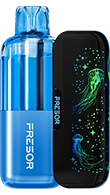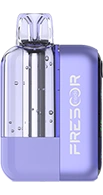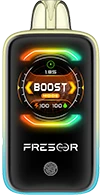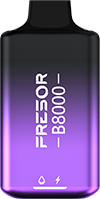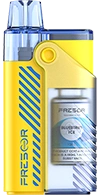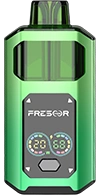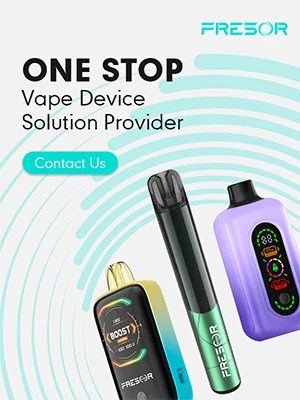Vaping Laws in California: A Comprehensive Guide to Regulations and Market Insights

21 April 2025
Vaping has become increasingly popular in California, with 5.2% of adults (approximately 1.4 million individuals) reporting current e-cigarette use in 2022. This rise underscores the importance of understanding state-specific vaping laws and regulations. California has implemented comprehensive measures to regulate the vaping industry to protect public health and ensure consumer safety.

This article provides an in-depth overview of vaping laws in California, exploring their impact on the market and addressing frequently asked questions.
Understanding these state-specific vaping laws is crucial for consumers, retailers, and manufacturers operating in California. This post delves into the vaping laws in California and the vape regulations surrounding the California market.
Let’s get started!
Overview of Vaping in California
General Vaping Trends in the State
California has witnessed a significant increase in vaping among adults, with usage rates rising from previous years. Notably, 5.2% of adults reported current e-cigarette use in 2022, indicating a growing trend. Among youth, e-cigarette use remains a concern, with 7.8% of high school students and 3.5% of middle school students reporting current use in 2024.
Generally, California has been at the forefront of the vaping movement, with a diverse demographic embracing e-cigarettes. The state's progressive stance on cannabis and tobacco alternatives has contributed to a growing market for vaping products. However, this growth has also raised concerns about youth access and public health implications.
California's Efforts to Control the Vaping Industry
In response to rising vaping rates, California has enacted stringent regulations to control the industry. These measures include banning the sale of flavoured tobacco products, imposing excise taxes, and restricting advertising targeting minors. The state also requires retailer licensing and mandates age verification for purchases, both online and in-store.
These efforts aim to balance the availability of vaping products to adults while minimizing potential risks to minors and the general public.
California Vaping Laws and Regulations
Minimum Age Requirement
In California, the legal age to purchase vaping products is 21. This applies to all tobacco-related products, including e-cigarettes, vape pens, and nicotine-containing e-liquids. The state raised the legal age from 18 to 21 in 2016 as part of its efforts to curb youth vaping.
Exceptions for Military Personnel
California law does not provide exemptions for military personnel regarding the minimum age requirement for purchasing vaping products. Everyone must be at least 21 to purchase these products, regardless of military status.
Sale and Distribution Regulations
Retailers who sell vaping products in California must comply with strict licensing regulations designed to monitor and control the distribution of tobacco and nicotine-related products. These laws help ensure that businesses operate legally while preventing underage sales.
1. California Tobacco Retailer License
All retailers selling vaping products through physical stores or online must obtain a Tobacco Retailer's License (TRL) from the California Department of Tax and Fee Administration (CDTFA). The license is mandatory for businesses selling:
· E-cigarettes and vaping devices
· Nicotine e-liquids (both flavoured and unflavored)
· Any other nicotine or tobacco-derived product
Retailers must renew their licenses annually, and failure to comply can result in heavy fines or suspension of business operations.
2. Local Licensing Requirements
In addition to state-level licensing, many cities and counties in California have their own licensing rules. Some areas impose even stricter regulations, such as banning the sale of flavoured vaping products or limiting the number of vape shops in a given region.
For example:
· Los Angeles County prohibits the sale of flavoured tobacco and vape products in most retail stores.
· San Francisco has completely banned the sale of e-cigarettes, making it one of the strictest cities in the country for vaping regulations.
· San Diego requires retailers to obtain a separate Tobacco Retailer Permit and a state license.
3. Application Process for a Tobacco Retailer’s License
To apply for a California Tobacco Retailer’s License, retailers must:
1. Register their business with the CDTFA.
2. Submit an application online through the CDTFA website.
3. Pay the required licensing fee (varies based on local regulations).
4. Comply with all federal, state, and local tobacco laws.
5. Display the license prominently at their retail location.
4. Penalties for Non-Compliance
Businesses that sell vaping products without a valid license face serious consequences, including
Increased state and local enforcement actions, including undercover compliance checks
Age Verification for Online and Retail Purchases
Both online and brick-and-mortar retailers are mandated to verify purchasers' ages to prevent sales to minors. Online sellers must implement robust age verification systems, while in-person retailers must check government-issued identification before completing a sale.
Therefore, to prevent underage vaping, California enforces strict age verification laws for both online and retail sales of vaping products. These laws ensure that businesses only sell vaping devices and e-liquids to individuals who meet the legal minimum age requirement as follows:
· Retail Age Verification (In-Store Purchases)
In California, it is illegal to sell vaping products to anyone under 21 years old, except for active-duty military personnel, who can purchase at age 18. To comply with this law, retailers must:
· Request a valid government-issued photo ID (such as a driver's license or passport) from all customers under 27 years old.
· Scan IDs electronically to verify authenticity (some cities and counties mandate ID scanners).
· Train employees on age verification procedures to avoid accidental sales to minors.
Retailers caught selling vaping products to underage buyers can face heavy fines, license suspension, or permanent revocation.
· Online Age Verification for Vaping Sales
Since online sales pose a greater risk of underage purchases, California has strict regulations for verifying customer age in e-commerce transactions. Online vape retailers must:
· Use third-party age verification software to confirm the buyer’s age against public records (e.g., DMV databases).
· Require customers to provide a government-issued ID for proof of age.
· Prohibit deliveries to minors—shipping carriers must obtain an adult signature upon delivery
Restrictions on the Sale of Vaping Products
California imposes specific restrictions on where vaping products can be sold.
For instance, vending machine sales of these products are prohibited, and certain local jurisdictions may have additional restrictions, such as bans on sales near schools or pharmacies.
Public Vaping Restrictions
· Vaping Bans in Indoor Public Spaces
Vaping products are prohibited statewide in workplaces and many public spaces, including restaurants and bars. This measure protects non-smokers from secondhand aerosol exposure and maintains public health standards.
· Outdoor Vaping Regulation
Outdoor vaping regulations vary by locality. Some cities have banned vaping in parks, beaches, and other public outdoor areas to reduce environmental pollution and protect public health. For example, certain municipalities prohibit vaping in multi-unit residences to prevent secondhand exposure.
· Specific Rules for Schools and School Grounds
Vaping is strictly prohibited on school properties, including buildings, grounds, and vehicles owned by educational institutions. This prohibition extends to all individuals, including staff, students, and visitors, to ensure a healthy environment for youth.
Advertising and Marketing Restrictions
California has strict advertising and marketing regulations for vaping products to prevent underage exposure and misleading claims. These restrictions align with federal laws and state-specific measures to curb youth vaping and promote responsible marketing practices.
· Advertising Guidelines to Prevent Targeting Minors
California enforces strict advertising guidelines to prevent the targeting of minors. These include prohibitions on advertising vaping products near schools and restrictions on using imagery or language that appeals to youth. Additionally, digital advertising targeting individuals under 21 is prohibited.
· Flavor Restrictions and Bans
The state has implemented a comprehensive ban on the sale of flavoured tobacco products, including flavoured e-liquids, to reduce their appeal to minors. This ban encompasses all characterizing flavours, including fruit, menthol, and dessert flavours.
· Packaging and Labeling Requirements
Vaping products sold in California must adhere to specific packaging and labelling requirements. These include child-resistant packaging, clear nicotine content labelling, and health warnings about the potential risks of nicotine addiction.
Taxation on Vaping Products
Overview of California’s Excise Tax on Vaping Products
California imposes an excise tax on vaping products, calculated based on the wholesale cost. This tax aligns with the state's efforts to reduce tobacco use by increasing the cost of these products, thereby discouraging consumption.
Revenue Usage from Taxes
Revenue generated from vaping product taxes is allocated to various public health initiatives, including smoking cessation programs, healthcare services, and educational campaigns about the risks associated with tobacco use. This allocation aims to mitigate the public health impact of tobacco and nicotine products.
Frequently Asked Questions (FAQs)
What is the legal age to buy vaping products in California?
In California, the legal age to purchase vaping products is 21. Effective June 9, 2016, this regulation aligns with the state's efforts to reduce tobacco use among young adults.
Do you need a license to sell disposable vapes in California?
Yes, retailers must obtain a tobacco retailer's license from the California Department of Tax and Fee Administration to sell disposable vapes. This licensing ensures compliance with state regulations governing the sale of tobacco products, including e-cigarettes.
Conclusion
California's comprehensive approach to regulating vaping encompasses age restrictions, licensing requirements, public usage bans, advertising limitations, and taxation policies. These measures aim to balance adult access to vaping products with public health considerations, particularly concerning youth.
Staying informed about these regulations is crucial for consumers, retailers, and manufacturers operating within the state. For more insights into vaping trends and regulations, visit the FRESOR website.
Featured Articles

Can You Vape in a Hotel Room? A Guide for Travelers, Vapers, and Hoteliers
2024-09-19

Vape Legal and Regulatory Weekly Report - September 14, 2024
2024-09-14
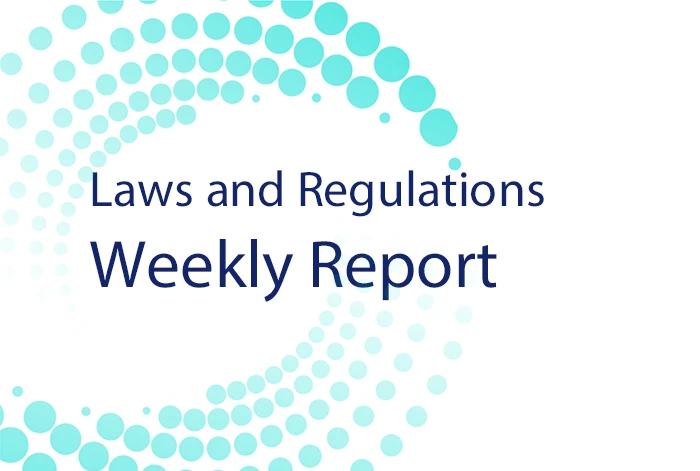
Vape Legal and Regulatory Weekly Report - September 9, 2024
2024-09-09

Vape Legal and Regulatory Weekly Report - September 2, 2024
2024-09-02
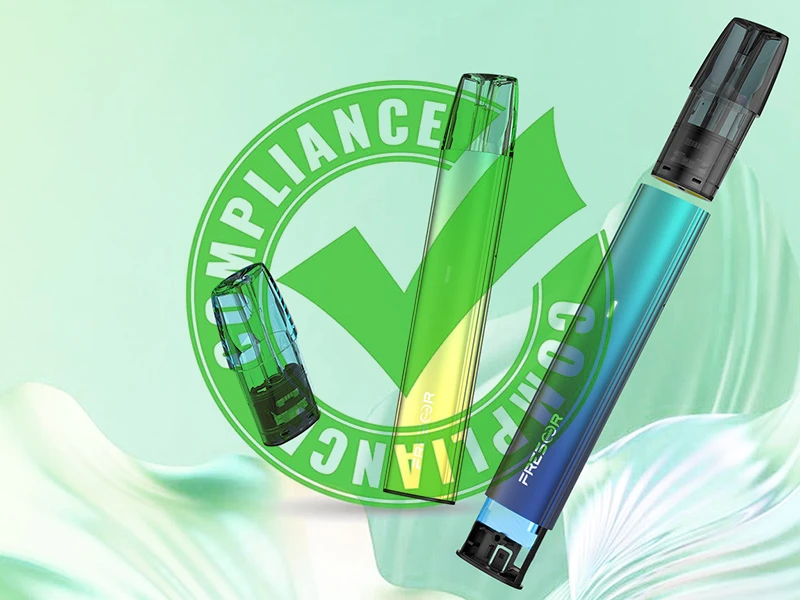
Vaping Laws in Germany: An Update on What You Need to Know
2024-08-12


